OPINION: Stop telling black people that they ‘act white’
March 24, 2019
As we’re currently living in a time where most of the western world is set on preaching tolerance, be it tolerance of race, gender and sex, sexual orientation, etc., it’s interesting to see that not much of a fuss has been made about the common practice of determining whether or not someone is “black enough.”
This can pop up out for many reasons. Sometimes it’s jokingly “taking someone’s black card” because they’ve never watched the movie “Friday” starring Ice Cube and Chris Tucker. Other times, it feels a bit ruder: I’ve run into people online who hope for another black president not because they like a particular presidential candidate who happens to be black, but because Obama was “only” half black.
The most common tactic that I’ve personally seen used to devalue someone’s blackness is proclaiming that they are “acting white” or “talking white.” Statements like these are often joked about like the aforementioned “black card” business, and while I’m not here to draw the comedy-line for others, what I do want to do is examine what makes these kinds of phrases harmful – even if accidentally – to both races involved.
It’s important to note early on that there’s nothing inherently wrong with being black or being white. Race doesn’t dictate behavior, and you can’t tell the color of someone’s character just by examining the color of their skin. I like to believe that most people understand this concept and that the “acting white” sentiment isn’t rooted in malicious intent, but that being said, it still doesn’t come off great the more you think about what’s being implied.
For starters, the rules for what exactly constitutes as “acting black” and “acting white” are hazy, with a lot of different cultural factors involved. There’s what the person wears, what music they listen to, the comedians they like – and possibly the most important, the way a person speaks.
Jaidyn Sharp, a third-year biology major here at UNC Wilmington, spoke at length about her disdain for the “talking white” debate.
“I think that probably one of the first instances where I realized that I was black was when I was in middle school and, you know, just talking to people, they’d be like, ‘Why do you talk so white?'” Sharp said. “I never let it change the way I spoke, but as I got older, I recognize it now.”
Sharp went on to explain that she feels the whole idea of “talking black” puts in people’s minds that black people are supposed to sound ignorant. Why does having formal English make you “one of the good ones?” It’s a slap to the face of all educated black people when one of the deciding factors of talking like them is something like bad grammar.
On the other side of the insult, the tone most often used alongside the “acting white” statement is one that seems to indicate that being white is bad in of itself. This is one of those racial issues that hits within the group as well as from the outside-in, as the statement demeans the singular black person and vilifies all white people in one move.
There’s a great video by the YouTube channel “Toonrific Tariq” that discusses black representation in cartoons, and there is a point around the 7:45 mark where he touches on the idea maintained by old school black comics such as the “Kings of Comedy” that all black dudes act one way and all white dudes act another way. Tariq argues in the video that this type of joke, though beloved by the African American community back in the 1980s and ’90s, actively pushes against the idea that black people are more than their skin tone.
On a personal note, I obviously get this now – even the six people in my house are completely different from one another – but I wish I’d gotten it as a child, as I think the image of what a black person is “supposed” to be was shaped by guys like Bernie Mac and Steve Harvey and it’s partially stuck with me still. I’ve entered a point in my life where I’m always excited to see another black person because I see myself in them, but I also don’t often find myself seeking an actual conversation because something inside me is still pretty sure I’m just going to end up letting them down.
I don’t really stick to one lane these days, instead mixing things up so that I can rock out to both N.W.A. and Queen, laugh at both Dave Chappelle and John Mulaney, and call my friends both “bruh” and “my dude,” but if there’s another brother out there who’s only into the second choices, more power to him.
It’s also great if you’re super into your African heritage and choose to celebrate Kwanzaa, or super into your Irish heritage and get all greened-up on St. Patrick’s Day, or super into your Mexican heritage and party for Cinco de Mayo, or super into your Chinese heritage and get into Lunar New Years.
It’s awesome to be able to celebrate your own culture, but it’s not okay to judge others because their interests fall more in line with those of another culture.












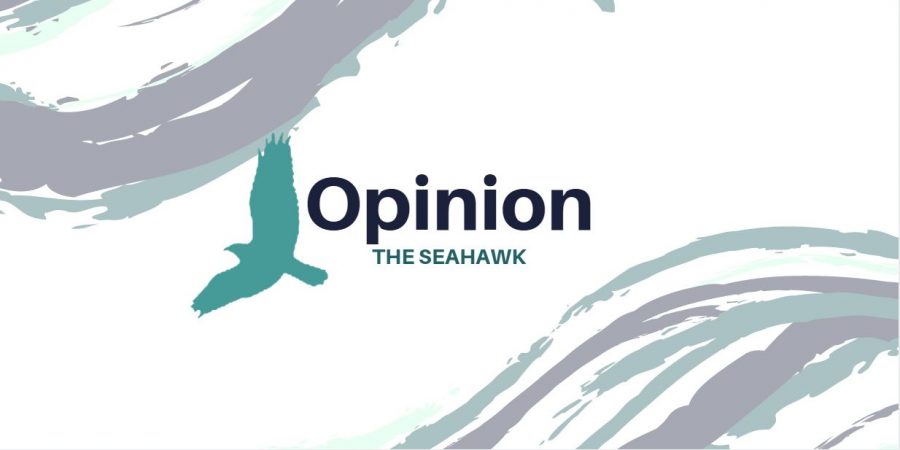
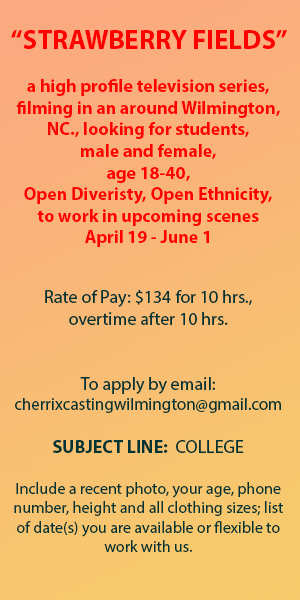


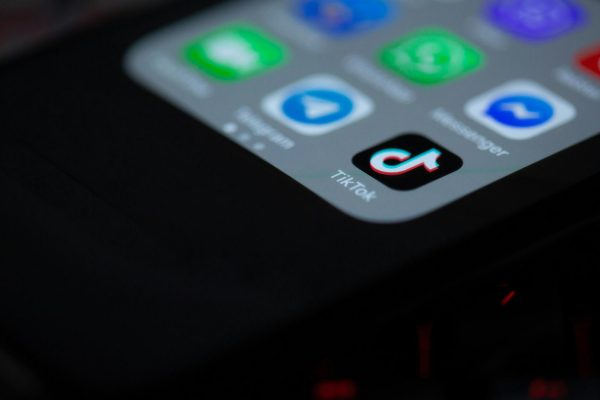

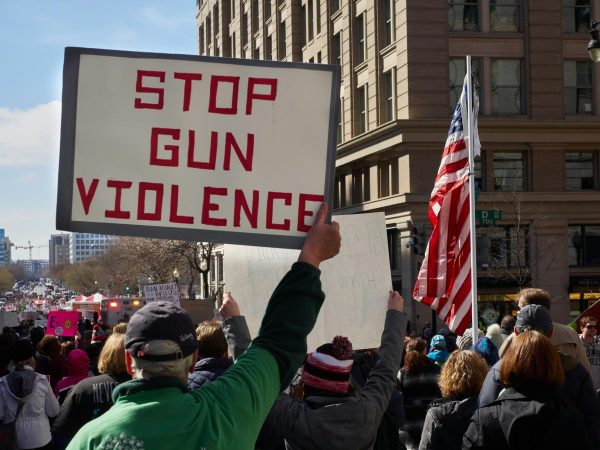


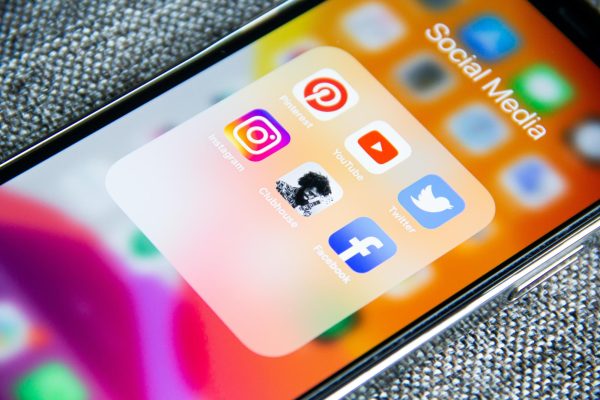
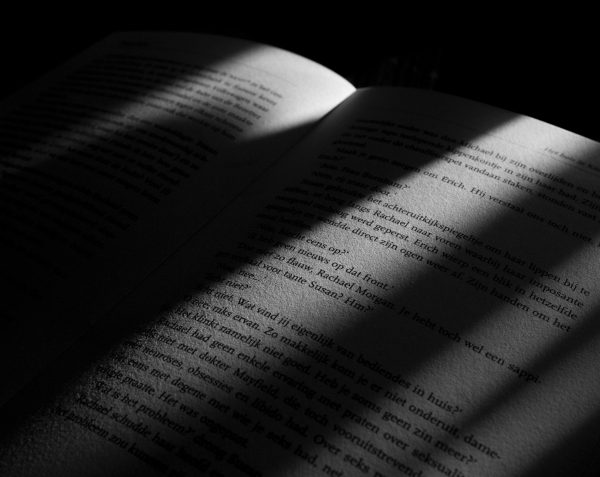

The VIP • Sep 26, 2023 at 7:00 am
Amazing article. This is something that seems to be common. Im in my mid 30s now and went to a private school. I was one of the only black people there, so everyday i had to hear comments about how i act white how i talk white, how i sound white, etc. Im in my 30s and STILL hear this from people. Its gotten bad to the point where i just let this live in my head. I tend to avoid interactions because i know that im going to eventually hear people comment on my “whiteness”. I shouldnt let it bug me but it does.
I am working on trying to embrace this, and make my “whiteness” a positive thing, but i dont even know where to start. Im just upset at myself that i allowed this stuff to literally take over my life and my interactions.
Anyways, thanks for sharing this.
Pablo • May 7, 2023 at 10:55 pm
I’m so glad I read this article. I’m not happy that so many people can relate to being called something pejorative, but it’s comforting to know other people understand. I’ve been called white practically my whole life, by black people and white people. Some random classmates, but sadly also my friends. Even my family. Being called white confused me, but never made me upset until recently. Nowadays, I get self conscious while talking to my black friends, terrified that they’ll talk about how white I am. I don’t even know what to say when I’m called white, or when they say I don’t act black. “You don’t tall black, you’re too nice to be black, you’re too smart to be black, but not smart enough to be white.” All have been said by both white people and black people to me. Evidently, when white people say it it’s prejudice, but with black people it’s ignorance, which I guess hurts me more. We keep enforcing stereotypes and in the end it just hurts everyone. I know I’m black, I am not whitewashed, but because I don’t know every rap song, speak educatedly, and have a diverse friend group my black card has to be revoked? I thought it was interestingly funny at first, but now it’s starting to really make me feel bad about myself. Sorry for making this so long, and I really appreciate this article.
Rodney Noble Jr • Dec 27, 2021 at 9:19 am
It’s sad how people just can’t be people, Diversity is such a beautiful thing, but we’re determined to put everyone into the same boxes. There’s more to being black than hip hop, r&b, sports, the hood, and the streets. my manner of walking, talking, and my interests doesn’t make me any less black than these people who worship the thug culture. I am so sick of this.
Vicky • Apr 9, 2021 at 1:28 am
Being half Asian & Caucasian, it’s never been easy fitting in with other groups but it’s odd to me that looking a certain way automatically puts you in a box due to it which is pathetic. I listen to pretty much EVERY genre, I love all kinds of food & I don’t just like tennis but also lacrosse & soccer as well as football & hockey. The terms “To act” any race is something that just needs to be abolished as a whole since it shouldn’t even matter.
Matt • Mar 31, 2021 at 5:10 pm
I am an African-American male. While in Grad school (Doctorate), one of my professors (an older white male) said I didn’t have a “root dialect”. So I asked him, “root dialect, what does that mean? He looked at me confused, I looked at him confused. In the moment, we were a confused “hot mess”. I pressed him on what he meant. He said, “I apologize, I didn’t mean to offend you”. I said, “Professor, with all due respect, I think you need to update your root dialect, the times have changed.” I could tell he was embarrassed. He smirked and said maybe so and walked away. I ended up getting an A in the class. I thought to share the incident with the Dean. I chalked it up as a lesson learned.
Bottom line, don’t let white folks off the hook. Let it be a teaching moment with an eye towards making a friend.
iyona • Jan 20, 2021 at 12:27 pm
im glade im back and if awhite person dont like it. OH WELL
Crystal • Jan 10, 2021 at 2:54 am
I appreciate this article. I’m a black women that grew up in mixed suburbs. As I got older I hung out with all kinds of people, I can pretty much vibe with anyone because I respect other people despite their ethnicities. I’m also American so I relate to Americans in general. Once I entered adulthood I started to hang around more black people and I always got “you sound white” . It didn’t bother,me I thought it was funny and didn’t really see it as an insult. However, the older I got, the more it bothered me. I recently moved to an all white town in Minnesota where my family and I were one of about 5 black families. The town was unwelcoming with a lot of underlined racism and intolerance for other ethnicities , or anyone that was an outsider. I felt the need to change. I started to talk “blacker” because I didn’t want the people that despised me to think I was trying to be them even though I wasn’t really being myself. We moved again and this time we’re in a mixed neighborhood but I still get the sense that I’m being judged by both black people and white people .They expect me to sound a certain way. It’s a never ending battle. I love who I am. I don’t want to be anyone but myself but it feels like a constant struggle, at work and school. Even at home because my mother hates black people who “talk white” and hates white people all together so when I’m around her and other black people that don’t speak like me, I feel the need to dumb myself down. I’m constantly feeling fake. It’s hard . I try not to let it bother me but it does. I just wish people wouldn’t equate being articulate or educated with being white . I understand, our communities have significant disadvantages as far as the educational system is concerned, on top of some much more oppression. I’m blessed to have had the opportunities I’ve had .I’m not judging my people or faulting them. I just wish I could get to a place where I don’t care what people think, this is who I am, this is how I sound, if you don’t like it , oh well.
Diana • Jul 26, 2020 at 5:40 pm
I’m so glad I came across this article. For so many years I have been insulted by black people and members of my own family for “trying to be white”. To this day, these insults hurt my feelings because what you’re trying to say is that Black people are supposed to be ghetto, ignorant, stupid and hostile. Excuse me if I want to have an education and have a better life. It’s a shame that most Black people I come across are so blinded by ignorance and we as a people roll over and accept failure too much and the very few that don’t, get made fun of and are often insulted. But it’s puzzles me because when the same people ostracize your character like this are the same ones who need you to use your smarts and money to help get them out of a situation.
Leo • Jul 16, 2020 at 5:58 pm
For me, it is a bit different than usual because I am white and go to a mostly black and Asian school. It was good for so many years, but then in grade 7 to 9 it went downhill. One day my class was changing for gym class and this one guy was play fighting with another and ended up saying he was “so white” even though he was black. I got a bit insulted and asked another guy (this one was Asian) if being white was bad, and he said one thing that has made me incredibly self aware ever since. He said “being white isn’t bad, it’s just acting white that’s bad.” A few days later the 2 guys were play wrestling again (both of them are black) and one of them said the same thing as before, “why do you sound white”. I asked him right there if being white was a bad thing, and he straight up said yes. So now, please don’t insult me because i am white and I know this problem is supposed to be for black people, but I personally think that this whole thing of “acting white” is offensive to people based on if you are majority or minority in a group. For most people, they are in a mostly white school and get offended like this, but for others like me, where black is majority, the same sentence takes a complete opposite meaning. And now especially with everything going on in the world with riots and stuff, I personally don’t really like myself now because I am white. I have so much history with being a minority, and with hearing everybody say things like “stop white supremacy”, it really affects me. Once, I even tried scratching myself to see if I could remove the white pigment on my skin to become black like the other people so that I wouldn’t be disrespected. I know now that that was an exaggeration, but I think the problem is in majority And minority of a certain group. Now please, don’t get angry at this because I am not supposed to have these problems, but this thing proves that even a sentence can make people insulted, no matter the race.
Wild Oreo • Nov 7, 2021 at 9:38 am
I hear you loud and clear and it’s unfortunate that you deal with that. You also bring a different perspective. This is why it is important to have conversations and not assume based on skin color, how someone dresses, and/or talks. You are created in God’s image, designed for good things, don’t let anyone tell you you’re bad, ever!
Rayray • May 19, 2022 at 11:30 am
Wow! I am a black woman and it’s sad that I never knew that this affected white people! I was and still am the black girl that only people from my city call “white”. Sometimes I hate coming back home because I am from the hood but I’ve always wanted to be better and got criticized by jealous people who wanted to remain ignorant. I am so SORRY that you had to go through that! And for all the riots and things, I had no idea white people felt any type of way about those, makes me feel terrible knowing that y’all go through that though
Matt • Jun 7, 2020 at 5:01 pm
I don’t know if this will reach the people who have commented already, but for anyone else who comes here searching for answers: I am 29 years old and I found this article because I am STILL trying to find out who I am and where I belong. I had the same experiences as all of you, and it is especially pressing right now in a time where being black is a powerful thing and necessary for the progress of our country. I am so glad that you kids have the intelligence and rescources to find answers to these questions and concerns. When I was young I did not know who to turn to or how to feel about these things. Liking to play games or read books or listen to green day doesn’t make you not black. And white people are not “more black” than you. That is crazy! You are black in the way that works for you!
Ashton • May 30, 2020 at 8:56 am
Hi
I’m so glad for this bcz I’ve losing some friends bcz they I’m acting white which hurt me alot.Im light skinned black nd indian looking and also a Christian…with a little indian.
People tell me I’ve been acting white since I made new white friends at youth.But the truth is…
I’ve always felt different than the rest of my friends.Like I would love different music than they would.Be into different things than they are.
Like I’m 16 now…not in for relationships yet,trying to focus on my studies.I like farming and truck driving and they’re into smoking nd stuff.I like playing games…and I mean any kind of games nd they like chilling nd drinking the whole time.
Idk…it’s just been difficult bt I’m glad I read this.Ill be looking to make new friends now
Clarice Ribeiro • May 13, 2020 at 6:30 am
Well I actually moved on from
a relationship where my ex partner use to call me Becky , because of my vocabulary and way I speak . Never thought was offensive until it became damaging my confidence to be expressive around him and others . I was creating a internal judgment on my own self !
Nobody should make negative observations out loud to someone , even joking ( it’s not ok ) everyone should feel free to be what the heck they are .
I am a block woman and I make choices and changes as everyone else and still deserve to elevate , expand my mind and treated with affection and love . Period
Makenzie • Apr 30, 2020 at 5:25 pm
Thank you so much for saying this! I’m so glad I’m not alone on this. I’m only in 7th grade and I get called “the whitest black girl ever” by my brother and his friends just because of the way I speak. It’s been happening for 3 years now and I hate it.
Shefika • Mar 9, 2020 at 6:21 am
So liking jazz is a “white thing” now?! The ignorance
kii • Mar 5, 2020 at 4:10 am
I deal with this also, i love green day and other bands like so but i get clowned about it a lot and people say i act white because of it ;(
Elise Williams • Mar 4, 2020 at 1:59 pm
I’m glad I am not the only person dealing with this problem. I am in 8th grade and I’m about to be in 9th grade and I’ve been called white so many times even though I am black. It really gets on my nerves because this Hispanic kid keeps asking me “why don’t you talk black?” Or “your the whitest black person I know”. I think this really has to stop because you shouldn’t just say that to people it’s very irritating on the side anyways. And this girl I thought was my friend she replied today wit “I mean you do act white sometimes”. It really hurt me to see how she really was. And now I know that you can’t just hang with anybody. But anyways, the boy who keeps saying “stop acting white” doesn’t know that he is enforcing stereotypes. I mean a lot of people nowadays think that blacks are hoodlums and thugs, and we don’t know any better. And that we are sneaky and we’re just bad people in general. Things like these that can happen in everyday life effect people. And we should be proud to show how we really are. There are black people who can act nerdy, or popular, or just funny. It doesn’t just have to be white people who act like that. And I’m the nerdy funny type and this has really gotten on my nerves. I wanna say that everybody’s different and you can’t change the fact of how some people are.
jared spears • Jan 6, 2020 at 7:45 pm
I am so relieved to find out I’m not the only person dealing with this problem. Because I am in high school and go too a mostly white school this kind of stuff has affect me positively and a lot negatively. Ive been called out a lot by mostly white people because I Suck at sports especially basketball. The only athletic thing I’m good at is running and playing catch. I am also in jazz band, drum line, and in a jazz program which doesn’t help win it comes to my “black card”. Also my first name is jared which also doesn’t help the fact that Im black but am not good sports, play drum set, and don’t talk super urban. Most of the black kids at my school are friends with me and are cool with me but that doesn’t stop white people from telling me that I act white. When this happens they say things like your the whitest black person I know, Im blacker than you, your an Oreo, black on the outside white on the inside and ect. The thing thats hurt me the most is that one a couple of occasions black kids have agreed which in a way makes them more white or more of a sell out. On another occasion a kid who knew my father called him white too which really appalled because they don’t know my dad very well. My dad group up in the west side of Akron Ohio in the 70s with a single mother, 4 siblings, and one step sibling. The sad part is my dad and mom work really hard to give me and my 2 brothers everything we need and has bought us up in a house hold with no cussing, no smoking, and no guns. Speaking of family I was talking to my brothers about how I act. In the conversation we talked about how over the years my behavior has changed because I wanted people to like me more which is one of the negatives of experiencing these types of ethnic slurs. My brothers told me to be myself and not to act like every other black person on tv Which was good advice but at this point I don’t know who I am any more. The last thing is that Ive been going to a white school for 5 yrs now and the ironic thing is that I use to live in stlouis and act very none urban or as others would say “white” but when I moved to St.charles I started acting more urban or in more ignorant words “more black”. It took me a while to come up with a proper come back or response to this type of ethnic slur but the next this type of thing happens I can just say not all black people act the same.
Nia • Sep 5, 2019 at 12:20 am
This is totally relatable. I’m in middle school now and I can totally relate. People call me white since I listen to 5sos and 1d. They also hate my overall outfits and thinks that I should wear bikes instead of converse. Also, I talk different and whenever they say ,”hi” they always laugh to what I am saying. So what I have to say….. I think that nobody should judge someone by how they talk, dress or listen to music since everybody is different and not every African american has “slaying edges” and listen to raps.